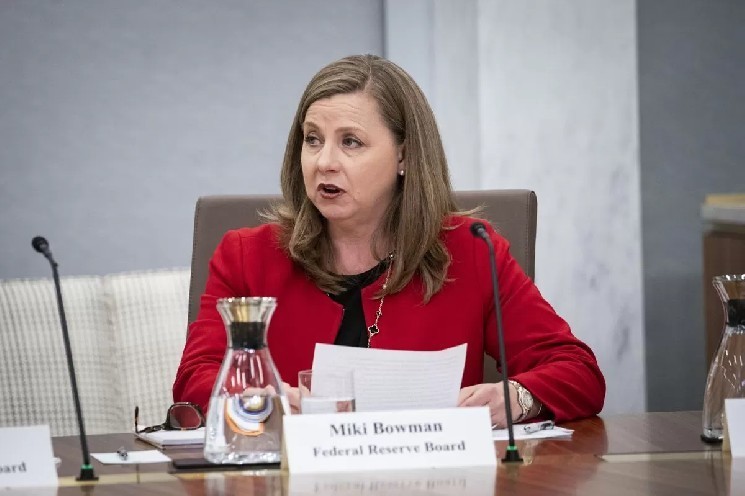Federal Reserve member Michelle Bowman said in his monetary policy assessment that neutral rates were higher than before the pandemic.
Bowman argued that the Fed’s inflation is within target range, but the risk to the labour market outweighs the risk.
Bowman supported a gradual approach to interest rate adjustments, saying “it is important to protect jobs by taking decisive and proactive steps right now.” He said the impact of monetary policy on the economy has become clear over time, highlighting the importance of central banks’ ability to make independent decisions.
Bowman said the Fed should aim for the smallest possible balance sheet size in the long run. He argued that bringing reserves closer to rarity than abundance makes them healthier, adding that “by enabling limited volatility in the money market, we can better understand the functioning and risks of the market.”
Bowman strongly supports him to hold only Treasury bonds on the Fed’s balance sheet, and said the transition to short-term bonds would give the Fed a lot of flexibility. He also added that the Fed should actively consider selling mortgage-assisted securities (MBS) holdings.
Bowman said the effects of one-off tariffs should be ignored, and revised wage data showed that the Fed was at risk of “lagging behind.” He emphasized the importance of a more forward-looking, proactive approach, saying, “Strictly relying on data leads to a backward-looking perspective and condemns constant responses to current situations.”
Bowman also said it will be a factor in population growth and aging population slowing down as well as lowering neutral interest rates over the long term. He also said technological advancements could lead to a permanent increase in productivity.
The governor said the Federal Open Market Committee (FOMC) may need to take “faster and stronger” actions as labor market dynamism weakens and signs of vulnerability become more prone to strengthen.
*This is not investment advice.


